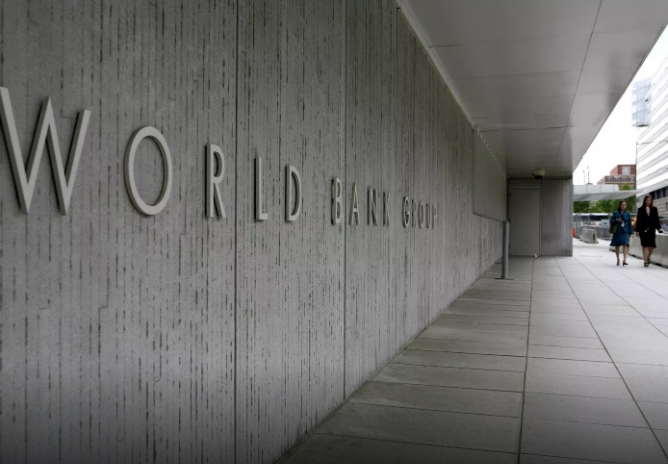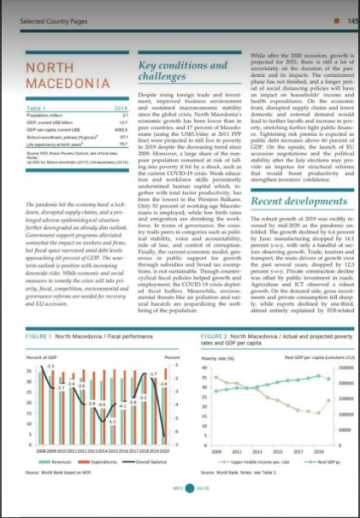The fall World Bank report presented a very serious picture of how Macedonia is handling the coronavirus epidemic, as a country which has by far the worst mortality rate in the Balkans and has spent its fiscal reserves.
Macedonia has 302.9 coronavirus deaths per million inhabitants – only Bosnia and Kosovo in the region come even close with 205.7 and 297 deaths, respectively. Larger regional countries, like Greece (28.1), Turkey (81.1), but also Serbia (107) and Albania (111.9) have far lower death rates.
The pandemic hit the economy hard: a lockdown, disrupted supply chains, and a prolonged adverse epidemiological situation further downgraded an already dim outlook, the report notes.
Another dire data point in the report is the economic collapse and the profilgate spending which overnight turned Macedonia from a moderately to a highly indebted country. The World Bank predicts that the 2020 GDP will see a contraction of 4.1 percent. That is not the worst result in the region – Bulgaria and Croatia will have their economies decline by 5.1 and 8.1 percent, while Serbia and Bosnia will see a contraction of about 3 percent. Industrial production in Macedonia is down 16.1 percent compared to 2019, and the tourist and private construction industries are badly hit, the report notes. Exports fell by a third while domestic consumption focused on essentials – food and IT equipment needed to have people function under quarantine.
The report estimates the Macedonian government debt at 59.1 percent for 2020 and slated to rise to 59.8 percent in 2021. The debt level was just 48.8 percent in 2019 – this is one of the most dramatic increases in debt in the region.
Government support programs alleviated somewhat the impact on workers and firms, but fiscal space narrowed amid debt levels approaching 60 percent of GDP… Weak education and workforce skills persistently undermined human capital which, together with total factor productivity, has been the lowest in the Western Balkans. Only 50 percent of working-age Macedonians is employed, while low birth rates and emigration are shrinking the workforce. In terms of governance, the country trails peers in categories such as political stability, voice and accountability, rule of law, and control of corruption. Finally, the current economic model, generous in public support for growth through subsidies and broad tax exemptions, is not sustainable. Though countercyclical fiscal policies helped growth and employment, the COVID-19 crisis depleted fiscal buffers. Meanwhile, environmental threats like air pollution and natural hazards are jeopardizing the wellbeing of the population, the report outlines the cavalcade of horrors.
The report estimates that 17 percent of all Macedonians live in poverty, with 5.5 USD per day or less. “Moreover, a large share of the nonpoor population remained at risk of falling into poverty if hit by a shock, such as the current COVID-19 crisis”.
The one bright point in the report is the 3.6 percent economic growth forecast for 2021, with caveats that the unpredictable coronavirus situation could alter this expectation.






Comments are closed for this post.